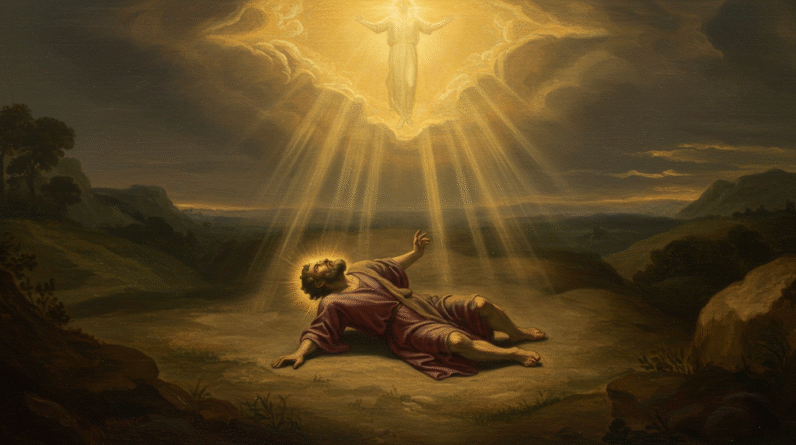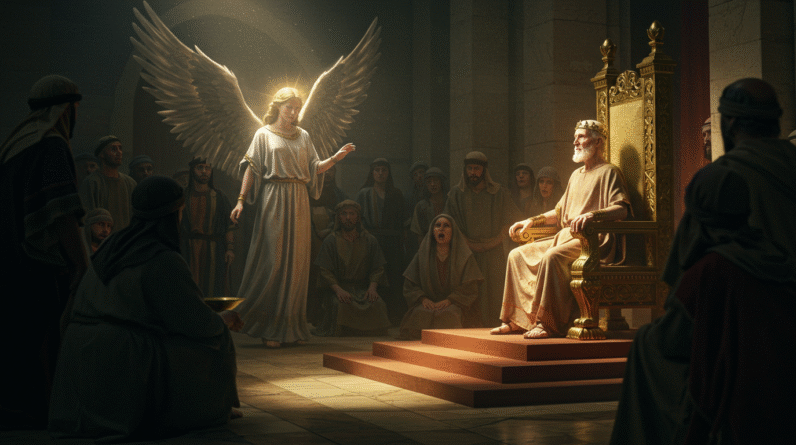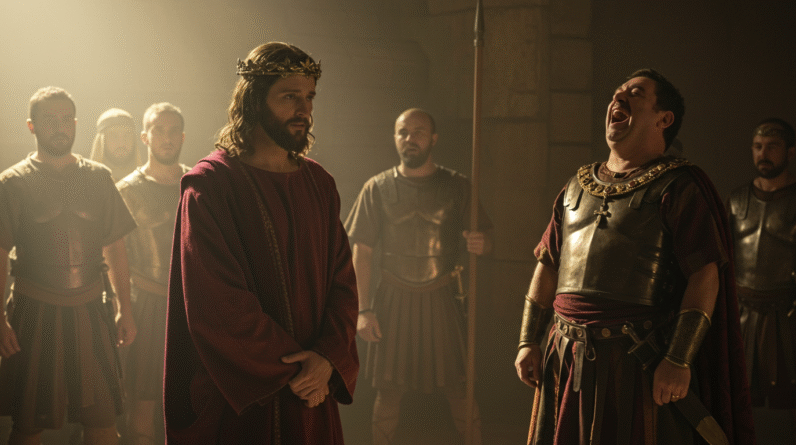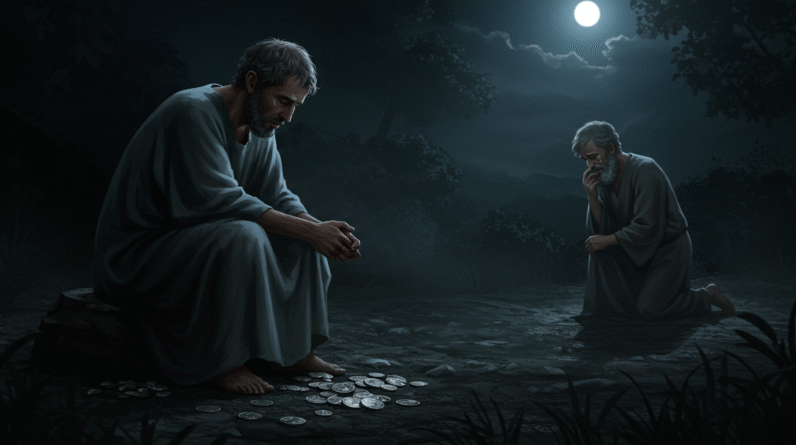Why Did Herod Fear Baby Jesus? Lessons from a Ruthless King
In the ancient landscape of Judea, where kings ruled with an iron fist and political maneuvering was a way of life, one king stood out for his extraordinary ruthlessness: Herod the Great. So, why did this commanding monarch fear a newborn baby named Jesus? The answer lies within the complex tapestry of his personality, insecurities, and the divine narrative intertwining these historical figures. As we delve deep into Herod the Great’s life and rule, several lessons emerge about pride, fear, and the overarching power of God’s sovereignty.
The Man Behind the Title: Herod the Great
A Brief Historical Background
Herod the Great was more than just a name; he was a powerful political figure who ruled Judea with a mix of shrewdness and terror from 37 to 4 B.C.E. Coming from an Idumean background, he was considered by some as an outsider to the Jewish populace he ruled. To solidify his position, Herod married Mariamne, a member of the Hasmonean dynasty, which was deeply revered by the Jews. Despite his efforts, such moves painted him as a suspect tyrant rather than a legitimate king in the eyes of his subjects.
The Paranoia King
Perhaps more famous than his achievements was Herod’s paranoia. Despite his extensive political acumen, he was relentlessly suspicious of anyone who might threaten his power, whether real or perceived. Herod the Great was infamously known for killing several members of his own family, including his wife and two of his sons, to avoid potential threats to his throne. His paranoia was so profound that the saying, “It is better to be Herod’s pig than his son,” emerged due to his dreadful tendency to lash out violently.
The Birth of a Challenger
The Arrival of the Magi
The catalyst for Herod’s fear was not the birth of Jesus but the prophecy associated with it. When the Magi, or wise men from the East, arrived in Jerusalem, declaring their intention to worship the newly born “King of the Jews,” Herod was deeply disturbed. The Magi’s question, “Where is the one who has been born king of the Jews? We saw his star when it rose and have come to worship him.” immediately challenged his rule, inciting a cascade of fear.
Fear of Prophecy
Herod’s fear wasn’t just about losing his crown. The prophecy of a Messiah posed a greater existential threat to him. Herod was a known and accepted ruler within the Roman context, but knew he was not a legitimate king in the Davidic line, which the prophecies hailed from. This foretold birth threatened to overturn the political and social order he so ruthlessly maintained.
Lessons in Pride
Understanding Herod’s True Weakness
While Herod the Great’s violence was overt, his inner struggle with pride was more insidious. Pride fueled his fear and paranoia, leading him to desperate measures, including ordering the infamous Massacre of the Innocents, where he sought to kill all male infants in Bethlehem under the age of two. This event is chronicled as “Then Herod, when he saw that he had been tricked by the wise men, flew into a rage, and he sent and killed all the male children in Bethlehem.”
Impacts of Pride and Fear
Through Herod’s story, you’re invited to reflect on the impacts of pride. Left unchecked, pride can lead to fear of losing control, resulting in decisions driven by desperation and terror. Herod’s pride made him believe he could control the unfolding of divine prophecy, a belief that ultimately set him on a doomed path of destruction and violence.
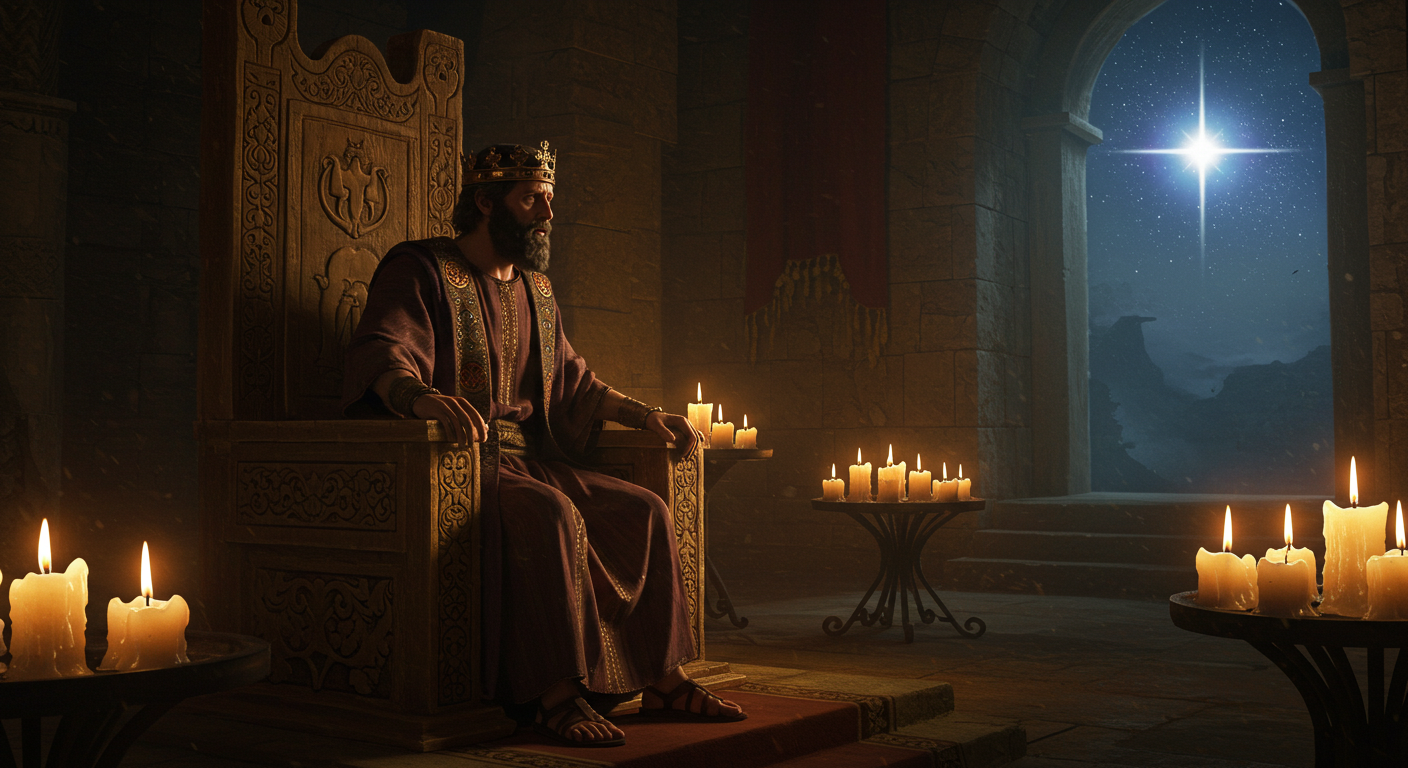
Lessons in Fear
Strength as a Mask
Herod’s brutality masked his fear of losing power and control. But underneath, his ferocity was an expression of deep insecurity. You may find yourself resonating with this concept, understanding that sometimes the appearance of unwavering strength might hide underlying fear.
Misplaced Fear
Herod feared for his temporal authority and legacy, but his misplaced fear overlooked the significance of spiritual authority. His story teaches you that focusing on worldly authority can obscure the understanding and acceptance of divine sovereignty, a lesson that resonates throughout history.
God’s Sovereignty in the Face of Human Folly
The Inescapability of Divine Will
Herod the Great’s attempt to thwart divine prophecy was a dire attempt at defying God’s sovereignty. His story illustrates that human actions, no matter how drastic, cannot alter God’s plan. You are prompted to see how divine wisdom ultimately prevails, encouraging trust in God’s omnipresence in your life.
The Enduring Legacy of Jesus
Despite Herod’s attempts, the prophecy carried through, illustrating God’s power over human schemes. Jesus’ legacy far outlasted Herod’s ephemeral reign, transforming lives and shaping human history across millennia. The contrast between Herod’s temporal authority and Jesus’ everlasting spiritual kingdom serves as a profound reminder of where true victory lies.
Conclusion: Reflections on Herod the Great
Herod the Great’s legacy serves not just as a historical account but as a poignant reflection on human nature’s battles with pride and fear. Through understanding Herod’s fear of Jesus, you are invited to examine your life, considering how unchecked pride and fear might lead to unnecessary turmoil.
Herod’s story imparts invaluable lessons on humility, trust, and the importance of surrendering to divine will. As you navigate your modern world, consider embracing these ancient teachings to cultivate peace and acceptance in your life.
Explore More
For further reading and encouragement, check out these posts:
👉 7 Bible Verses About Faith in Hard Times
👉 Job’s Faith: What We Can Learn From His Trials
👉 How To Trust God When Everything Falls Apart
👉 Why God Allows Suffering – A Biblical Perspective
👉 Faith Over Fear: How To Stand Strong In Uncertain Seasons
👉 How To Encourage Someone Struggling With Their Faith
👉 5 Prayers for Strength When You’re Feeling Weak

📘 Jesus and the Woman Caught in Adultery – Grace and Mercy Over Judgement
A powerful retelling of John 8:1-11. This book brings to life the depth of forgiveness, mercy, and God’s unwavering love.
👉 Check it now on Amazon
As a ClickBank Affiliate, I earn from qualifying purchases.
Acknowledgment: All Bible verses referenced in this article were accessed via Bible Gateway (or Bible Hub).
“Want to explore more? Check out our latest post on Why Jesus? and discover the life-changing truth of the Gospel!”



